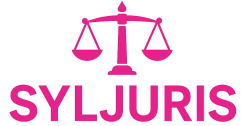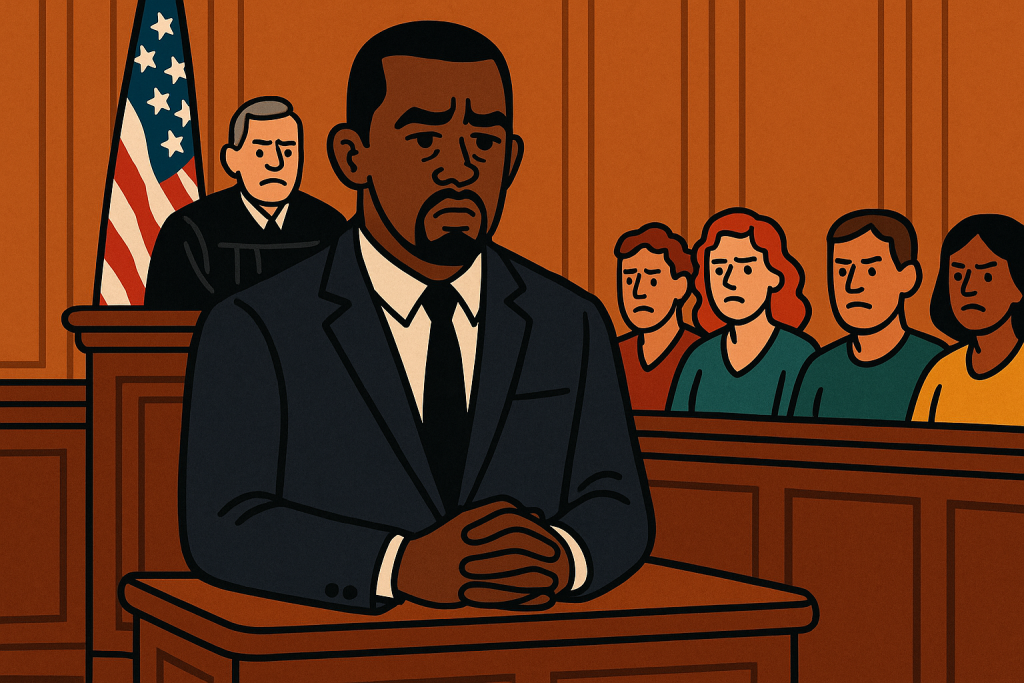In July 2025, Sean Combs — known worldwide as Puff Daddy, P. Diddy, or simply Diddy — heard the verdict of a federal jury after a high-profile, weeks-long trial that pulled back the curtain on some of the music industry’s darkest corners. The charges against Combs, the evidence presented, and the verdict highlight both the challenges and the opportunities for survivors of exploitation in the entertainment business.
The Charges: Legal Definitions
Sean Combs was indicted on five federal felony counts:
- Racketeering Conspiracy (RICO): Prosecutors alleged he used Bad Boy Entertainment and its affiliates as a criminal enterprise for drug trafficking, forced labor, kidnapping, and sex trafficking.
- Sex Trafficking by Force, Fraud, or Coercion (2 counts): Tied to allegations that Combs used his wealth, fame, and intimidation to coerce women into sex acts.
- Transportation for the Purpose of Prostitution (2 counts): Based on allegations that Combs knowingly transported women across state lines to engage in commercial sex.
Under federal law, racketeering (under the RICO Act) is designed to punish individuals who organize or run ongoing criminal enterprises. Sex trafficking charges under 18 U.S.C. § 1591 require proof that victims were recruited, enticed, or maintained through force, fraud, or coercion. The prostitution transportation charges (18 U.S.C. § 2421, the Mann Act) are slightly different: even if a victim consented, knowingly facilitating interstate travel for prostitution is a separate crime.
The Verdict
On July 2, 2025, after intense jury deliberations, Combs was acquitted of the most serious charges: racketeering conspiracy and the two counts of sex trafficking. However, the jury convicted him on two counts of transportation for the purpose of prostitution, relating to incidents involving the singer Cassie Ventura and an unnamed woman known in court documents as “Jane.”
This means the jury did not find enough evidence beyond a reasonable doubt that Combs was running a broad criminal enterprise or that he used force or fraud to force sexual activity. But the convictions confirm the government proved he facilitated transporting women across state lines for paid sex, which is a federal felony even without coercion.
The Evidence
The prosecution built its case around:
- Survivor testimony: Ventura and “Jane” described being pressured to engage in drug-fueled sex acts at so-called “Freak-Off” parties, threatened with the release of explicit video if they did not comply, and enduring violence from Combs.
- Video footage and text messages: Jurors saw hotel surveillance showing physical violence and messages in which Combs appeared to reference controlling the women’s behavior.
- Industry witnesses: Bodyguards, assistants, and others described a climate of fear in which Combs controlled his entourage with money, intimidation, and threats.
In contrast, the defense painted a picture of consensual “kinky” relationships and argued that Combs was being targeted because of his wealth and celebrity, pointing to affectionate texts sent by the accusers even after the events.
Ultimately, the evidence was enough for jurors to convict on prostitution-related transportation charges but not to conclude a criminal enterprise or forced trafficking beyond a reasonable doubt.
Possible Sentencing
Each transportation count carries a maximum of 10 years in federal prison. That means Combs is facing a potential 20 years in theory. However, under the U.S. Sentencing Guidelines, and based on nonviolent factors and lack of prior similar convictions, experts estimate a guideline range of about 4 to 5 years in prison. His defense team is expected to argue for a shorter sentence, possibly closer to two years, at a sentencing hearing currently scheduled for October 2025. Combs has been denied bail and remains in federal custody pending sentencing
What This Means for Victims in the Industry
For many survivors watching this trial, the outcome is deeply discouraging. Although Sean Combs was convicted of two counts related to transporting women for prostitution, he was acquitted of the more serious charges of sex trafficking and racketeering, despite extensive evidence and multiple victims describing coercion, threats, and violence. The verdict highlights a harsh truth: enormous wealth and celebrity power can still shield the most privileged from the full consequences of their actions, even when credible, corroborated testimony is brought forward.
Rather than sending a clear message that no one is above the law, this trial underscores how the justice system can be stacked against survivors — especially when the accused is among the wealthiest and most connected people in the industry. For victims, it can reinforce the fear that speaking up will expose them to re-traumatization and public scrutiny, without any guarantee that the legal system will deliver meaningful justice.
While the convictions on prostitution-related transportation charges do show that some accountability is possible, they feel incomplete compared to the scope of allegations. Ultimately, the trial reveals how celebrity, money, and power can still tilt the scales, leaving victims to wonder whether pursuing justice is worth the personal cost.
Broader Industry Impact
Entertainment giants have long operated in the shadows, protected by rumors, nondisclosure agreements, and hush money payouts that kept misconduct hidden. For decades, powerful figures in music, film, and television have relied on these tactics to silence victims and maintain their reputations. This trial, however — with its stark video evidence, revealing text messages, and testimony from high-profile insiders — has the potential to finally pierce that wall of silence and force long-overdue public reckoning.
In the wake of this case, we may see more victims stepping forward, emboldened by the bravery of Cassie Ventura and “Jane,” who testified despite enormous pressure and public scrutiny. Their willingness to name their abuser and describe the patterns of coercion and violence could encourage other survivors to break their own silence, challenging a culture that has historically minimized or dismissed their experiences.
Beyond additional victims coming forward, the industry could face a wave of civil lawsuits or even new criminal charges, depending on what further evidence or accusations emerge. High-profile cases like this tend to prompt other survivors to come forward, which can trigger broader investigations and accountability efforts.
There will also likely be growing industry pressure to build stronger safeguards against abuse. This could include more robust whistleblower protections, clearer anti-harassment policies, truly independent reporting systems, and reforms that remove the culture of fear and retaliation that too often surrounds speaking out. These changes could reshape how abuse allegations are handled and prevent future cover-ups.
Ultimately, while this verdict may not have satisfied everyone — especially those hoping for convictions on the more serious charges — it does mark an undeniable shift in the conversation about accountability in the entertainment world. The public is watching, and the myth that fame and fortune can buy total immunity is no longer as bulletproof as it once appeared.


I think what’s really frustrating. Is that people like him like you said never really suffer real consequences. Yes he went to prison. Yes, he’s going to get in some kind of trouble. But if someone was poor, would they still get away with all of the crimes that he did